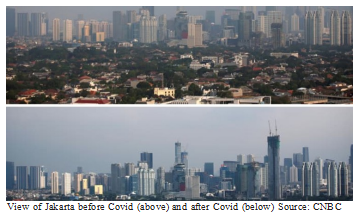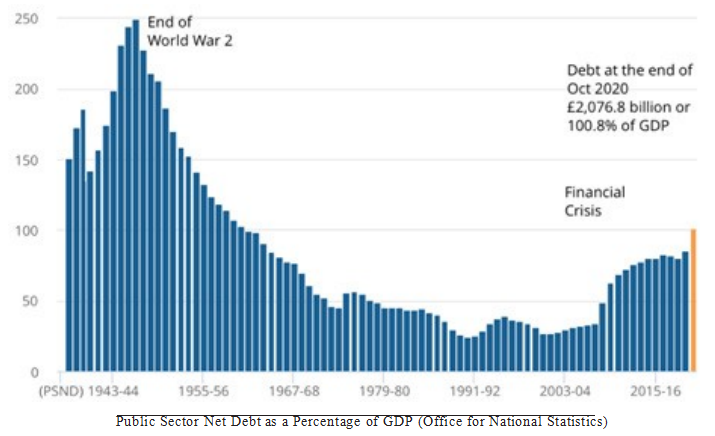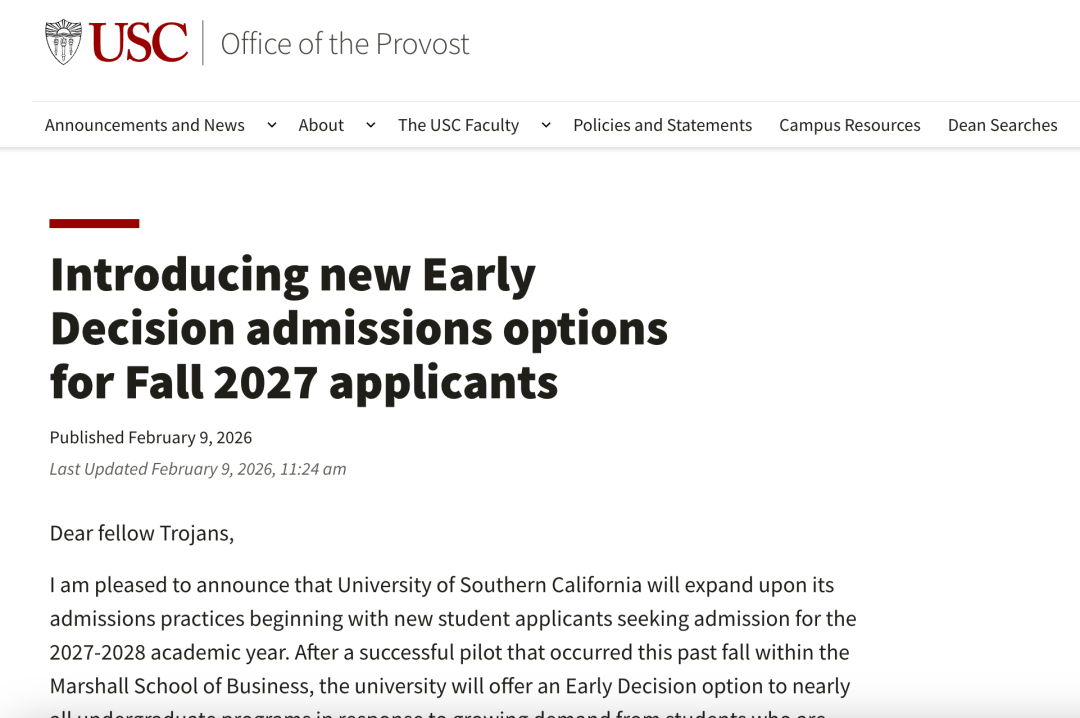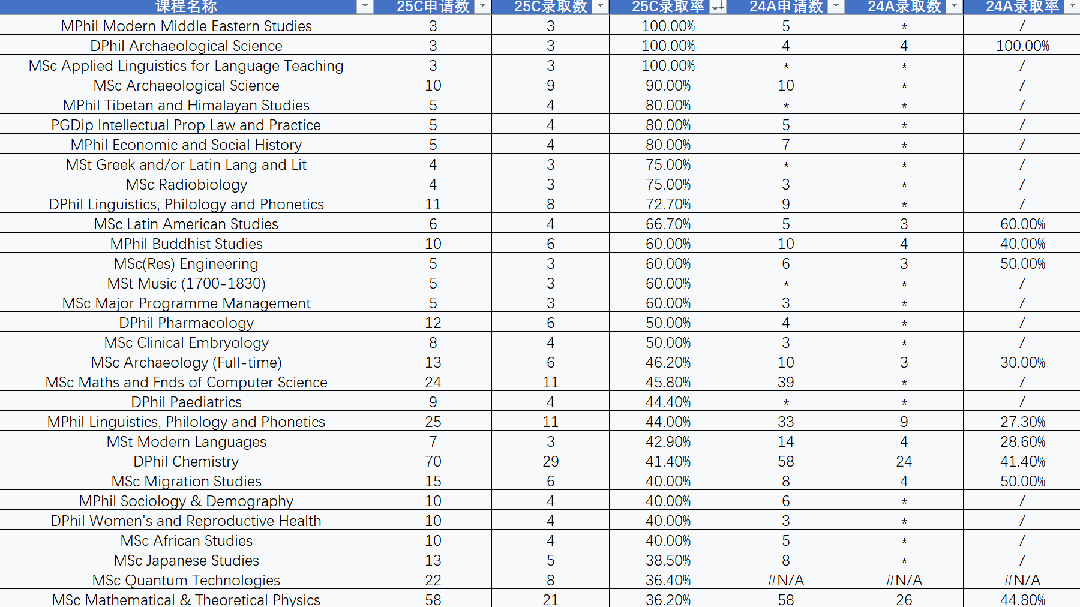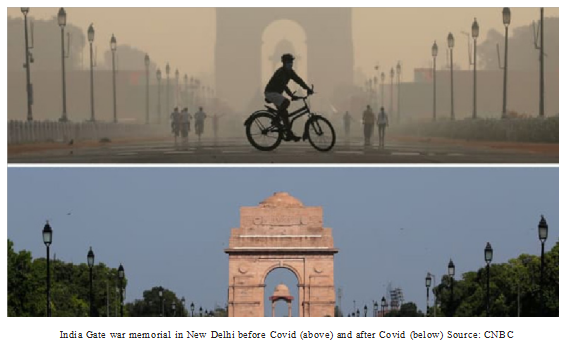
The phrase ‘unprecedented times’ is one that has become very familiar over the last year. It is often used by the Government in news briefings to excuse poor policy decisions and firms to justify cuts and lay-offs. Nevertheless, it emphasises the impact that unexpected situations can have: the scale of this crisis was unimaginable a year ago, and the worst is likely still to come. Tragically, 2.32 million people have lost their lives to COVID-19, with many more predicted to do so, and the global economy has experienced disruptions to both the supply and demand sides as never seen before. UK Government borrowing since April has reached £214.9bn in an attempt to combat the negative consequences of the lockdowns, £169.1bn more than the previous year. If only we could have predicted this, surely we would have been able to implement measures to significantly reduce the consequences and prevent such a devastating situation?
You would think the answer to this question would be a resounding ‘yes’, yet we have received warnings about climate change for decades which have persistently been dismissed by governments and the general public alike. The influence on behaviour of hyperbolic discounting, meaning that people tend to place more weight on current situations than the future, has strongly induced climate inaction, with consumers and firms discounting the future and choosing to continue to pollute for the short-term gains. However, action cannot be delayed anymore, because the climate crisis is happening now. According to the WHO, climate change is already estimated to be the cause of death of over 150,000 people annually, with those living in developing countries more likely to be affected. Significant temperature changes and weather-related natural disasters, which have tripled since the 1960s, not only directly lead to deaths, but also impact food production and the spreading of disease. This figure is estimated to increase to around 250,000 additional deaths per year by 2030 - it is therefore a very real, and urgent crisis.
The economic uncertainty and health crisis created by the COVID-19 pandemic has slowed down climate action, with almost all governments’ scarce time and resources being used to combat the virus and its impacts. Before the pandemic hit, discussion around climate change was beginning to gain momentum, partly due to the wide-reaching influence of figures such as David Attenborough (whose popularity is reflected in his world record for the fastest time to receive 1 million followers on Instagram) and Greta Thunberg. Planned climate conventions, such as the COP26 UN climate change conference, have been postponed, and progress towards meeting climate goals has significantly slowed.
At first, the impact on climate change of the global response to COVID-19 was looking overwhelmingly positive. During the spring of 2020, when most countries were beginning to enter national lockdowns, emissions fell significantly. Industrial emissions in China fell by around 18% between February and March, amounting to around 250 million tonnes, and during the lockdown peak, global emissions of carbon dioxide fell by 17% - around 17 million tonnes every day. In Europe, it is estimated that this reduced pollution will have led to at least 11,000 fewer fatalities from air pollution, and in the UK, 2 million people with respiratory conditions experienced reduced symptoms.
The effect of reduced pollution levels was extremely visible. Before and after photos of landmarks once hidden behind clouds of smog were shared all over the internet, hailed as a sign of hope for the planet. It was as if the clear waters of Venice and picture- perfect view of Mount Everest signalled the Earth breathing a sigh of relief.
It wouldn’t come as a surprise to many to say that the monotony of life in lockdown has resulted in the onset of boredom. The rise of TikTok has attracted the attention of advertisers, and viewers’ consumption is strongly influenced by trends and influencers. Research has shown that boredom makes consumers more susceptible to stimuli, looking to increase their utility through online purchases, even if only momentarily. Advertisers, as well as Instagram with their new shopping facilities, have aimed to take advantage of this. This appears to have been successful: 10 years’ worth of growth in e-commerce deliveries occurred in just 8 weeks during lockdown, and, in total, over 2.2. billion letters and parcels were delivered by Royal Mail last year.
Three quarters of the UK population now do theirgrocery shopping online, a trendwhich has been exacerbated by the pandemic, and these levels are likely to be sustained as consumers’ consumption habits change- it takes 66 days to form a habit (and the pandemic has been going on much longer than that…). Many retailers will be forced to adapt to the increased demand, further facilitating the ease of online shopping, or face financial difficulty. Numerous well- known retailers have suffered, including Debenhams and the Arcadia Group (which owns brands such as Topshop and Miss Selfridge) collapsing into administration. Unfortunately, the rise of online shopping generates increased packaging waste and high carbon emissions, particularly with next day delivery, partly offsetting the fall in industrial emissions. Measures to limit the spread of the virus has also generated more waste, with some shops banning reusable plastic bags and refusing to accept returned items. In some cities and states in America, recycling programs have been suspended completely. The increase in PPE, as well as cleaning equipment, has also resulted in considerable amounts of waste, and much of this is unlikely to be biodegradable.
One welcome change of the lockdown measures is that commutes are no longer a reality for many workers. According to the ONS, 28% of adults began working from home full time during the lockdown period, and many continued to do so as restrictions were eased. Remote working has saved commuters’ valuable time and money, with UK citizens estimated to have saved £267 million on fuel from May to June. In the US, despite not having a national lockdown, car use decreased by around 40%, and overall road traffic fell by more than 70%.
This new reality has increased demand for online platforms, such as Zoom, to facilitate social and business interactions. Although the novelty of Zoom calls has certainly worn off, the ease of gathering people together from all over the world has led to the substitution of business trips for digital conferences, a change likely to be sustained. Why fly half way across the world for a conference, when you could attend from the comfort of your own home?
The airline industry has already been heavily impacted by travel restrictions implemented by governments, most recently in an attempt to limit the spread of new variants, and overall estimated emissions are forecast to have been around 40% lower than 2019 levels. Begging for lifted restrictions and government aid, the airline industry is clearly suffering, although the longer-term effects are yet to be determined. Countries are at different points in their vaccination programs, and travel restrictions have the potential to be in place for a long time. It is conceivable that new strains of the virus will be resistant to the vaccine, and governments may be unwilling to freely allow entry to citizens of countries with slower vaccination programmes.
Structural changes in the energy industry are likely to be seen due to this fall in demand for oil and gas. Cleanand renewable energy substitutes have become relatively more expensive, suggesting a short-term reduction in demand, yet investors are beginning to realise that the reliability of renewable energies is preferable to the volatility of oil and gas. Additionally, the fossil fuel industry is already subsidised by governments, with the US government’s direct subsidies amounting to around $20bn per year. While prices and demand are low, it would make sense for these subsidies to be dramatically reduced, subjecting this industry to the free market and making more money available for longer-term green energy investment. However, the political implications of doing so would be incredibly damaging, and governments, with the potential for re-election hanging in the balance, are unlikely to risk it.
This is not to say that all governments have abandoned their environmental targets. A third of Germany’s COVID-recovery stimulus investment programme will be spent to cut emissions, amounting to approximately 45bn Euros. Not only will this spending help to boost them out of a recession, but will also contribute to the generation of a competitive advantage for Germany in these industries, hopefully avoiding the issue of stagnation which plagued so many European countries after the financial crisis related stimulus packages. As well as subsidising the electric car industry, Germany has also taken a considerably longer-term approach, choosing to invest around 9bn Euros on hydrogen as a source of energy. This is unusual for stimulus spending, which tends to be implemented with the short-term in mind, but the longer-term impacts of this could be lucrative, particularly as the EU and Germany have plans to implement policies to ensure stable hydrogen production, which will further attract considerable levels of investment.
So, how desperate are we to return to life as we knew it? Or is this ‘new normal’ going to be embraced around the world? Both firms and consumers are keen to see the economy functioning again, and sadly, growing pollution levels have meant the clear waters and skies of the lockdown days are no more. In a survey of 49 British towns and cities, 80% had contamination levels the same or worse than before the pandemic, and according to the UN, the impact of lockdown will only have led to around a 0.01C difference by 2030, and the fall in CO2 growth is within the natural variability that occurs each year. Overall, carbon emissions fell by 2.4bn tonnes, but to meet the Paris Climate Agreement, this needs to happen every year for the next decade. It is therefore vital that governments use this situation as an opportunity to reshape the future towards sustainability. Stimulus packages should follow in the footsteps of Germany, investing in green industries with strong economic potential to create jobs and innovation. Leaders around the world need to work together to avoid the global warming disaster, especially in this time of great change. The appointment of the new US president has brought America back into the Paris Agreement, and Biden is keen to be at the forefront of climate innovation, starting his presidency with an ambitious climate plan and willingness to cooperate with other countries. Additionally, Johnson, opening the Climate Ambition Summit in December, laid out the UK’s plans to achieve carbon neutrality, including the banning of internal combustion engines by 2030, and signalled the importance of global collaboration to achieve these goals.
This is not a fork in the road, requiring a choice between the COVID crisis today and the climate crisis in the future. Now is the perfect time to reboot the economy, tackling both COVID-19 and climate change together through job creation and investment in sustainable industries, to ensure a cleaner, greener future.
